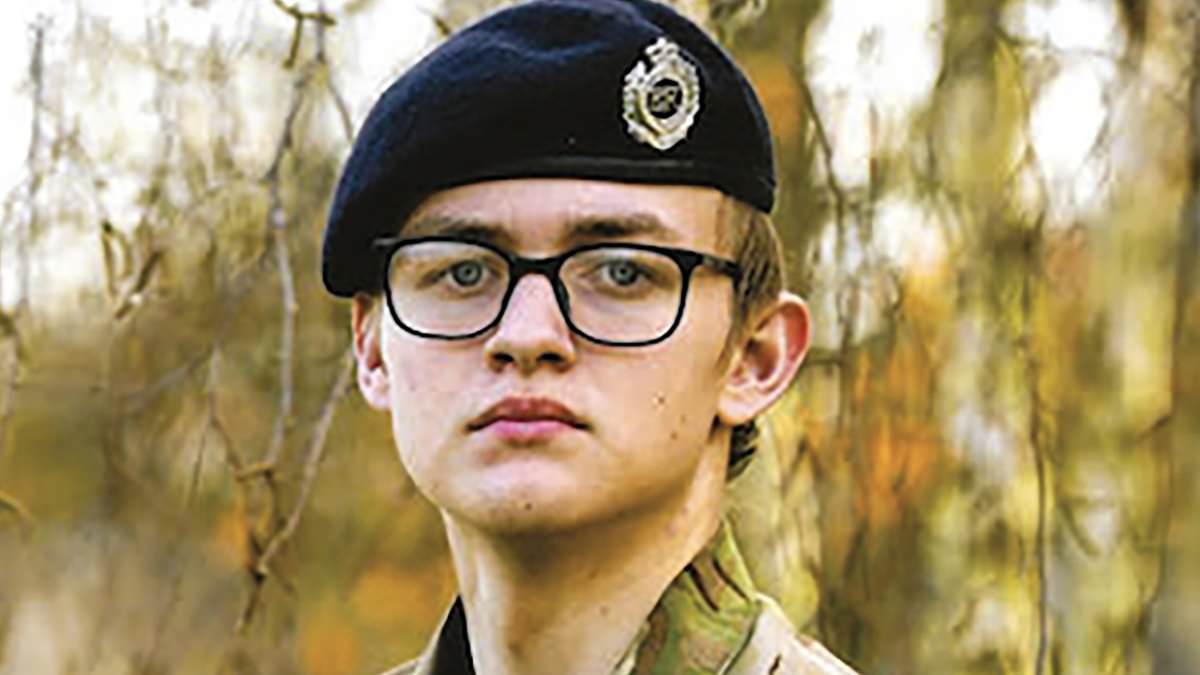A soldier who died from heatstroke while on a training run received no vital medical treatment for half an hour, a report by an armed forces regulator has found.
Sapper Connor Morrison, 20, collapsed during the group run on July 21, 2022 – just days after the UK had recorded its hottest-ever day when temperatures reached 104F (40C) in Lincolnshire.
The Defence Safety Authority (DSA), which regulates armed forces’ safety and investigates accidents, has found that the young soldier’s death could have been avoided if he had been given vital treatment earlier.
Spr Morrison, of 23 Parachute Engineer Regiment stationed at Rock Barracks in Woodbridge, Suffolk, waited 31 minutes to receive treatment for heat collapse and no water was on hand during the exercise.
A nurse had to rush to a local shop to get some fluids, while some more was taken from eye irrigation bottles in the ambulance.

Sapper Connor Morrison (pictured), of 23 Parachute Engineer Regiment stationed in Woodbridge, Suffolk, collapsed during a group run on July 21 2022 – just days after the UK had recorded its hottest-ever day when temperatures reached 104F (40C) in Lincolnshire

Now the Defence Safety Authority (DSA), which regulates armed forces’ safety and investigates accidents, has found that the young soldier’s death could have been avoided if he had been given vital treatment earlier
The report also said there had been ‘sufficient indicators’ to support an ‘immediate diagnosis’ of heatstroke during the run.
Colleagues had noticed the soldier, who may have been anxious about serving in his new unit, weaving from side to side towards the end of the run, which is often a strong sign of heatstroke.
Spr Morrison was running at a slower pace to others in the group but was able to hold conversation.
The DSA’s panel has now made more than 40 recommendations to reduce risk during physical training in the armed forces.
The report urged that water should be made immediately available by military units and a heat checklist would have been useful.
It said: ‘From the point of collapse it became apparent that water would be needed to aid cooling.
‘But treatment for heat collapse was not initiated until 31 minutes after collapse and the only fluid available was water obtained by a nurse who obtained some from a local shop as well as one-litre eye irrigation bottles carried in the ambulance.

Sapper Morrison suffered serious breathing difficulties and collapsed while at Rock Barracks in Sutton Heath, Suffolk (pictured)
‘If water been immediately available amongst the group, cooling treatment may have been initiated earlier.’
This comes after the inquiry concluded on Saturday that ‘on the balance of probabilities Spr Morrison’s cause of death was exertional heatstroke’.
The soldier was not in poor physical condition but had gained some weight since joining the army, according to the report.
The DSA report stated: ‘There were sufficient indicators to support an immediate diagnosis of heatstroke but this was not acted upon immediately.
‘The symptoms had become apparent during the latter stages of the run when participants had witnessed Spr Morrison’s inability, he was seen weaving from side-to-side.
‘In the opinion of the panel this late diagnosis of heatstroke may have significantly reduced Spr Morrison’s chances of survival and was a contributory factor.’
Earlier this year the Health and Safety Executive had concluded that the soldier had died from natural causes as a ‘non-operational incident’.
In a statement issued after the soldier’s death, Lieutenant Colonel Jack Crossley, the regiment’s commanding officer, described Sapper Morrison as a ‘keen and enthusiastic soldier who worked hard to achieve his goals’.
An army spokesperson said: ‘Our thoughts and deepest sympathies remain with Sapper Morrison’s family and friends at this difficult time.
‘We take our responsibilities as an organisation extremely seriously and are wholly committed to improving organisational learning to minimise the chances of repetition.
‘We will review and action the recommendations made in the service inquiry report as a matter of urgency.’
